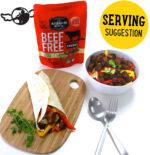Taupo dairy farmer recognised in Dairy Community Leadership awards
Taupo dairy farmer Kylie Leonard has been recognised for her community involvement by Dairy Women’s Network with the 2018 Dairy Community Leadership Award. The award celebrates the unsung heroes of rural communities and was presented at a gala dinner tonight during Dairy Women’s Network’s conference in Rotorua. The conference also marked the Network’s 20th year. Leonard milks 400 cows at Oruanui, Taupo, with her husband Rick and daughters Kate, Isla and Eloise. Her family has a long history of farming in the Central Plateau; her grandparents walked from Te Aroha, in Waikato, to Reporoa to establish their dairy farm in the 1950s. Originally training as a teacher, in 2011 Leonard and her husband entered into a farm equity partnership with her parents, where she continues to milk and rear calves while teaching children with learning disabilities part-time. Leonard says receiving the Dairy Community Leadership award is acknowledgement of her commitment to promoting the dairy farming lifestyle. “It’s an honour to receive the Dairy Community Leadership Award,” she says. “The dairy industry is in my heart and soul, and seeing others be involved and succeed is a really great feeling. “For me, connection is all about authenticity and inclusion – whether that’s sharing a positive story about the industry or putting my hand up to question something. I pride myself on being a positive role model to others.” Leonard regularly promotes and hosts visits to her farm with playcentres, kindergartens, primary schools, colleges and visitors. “Sharing a positive story and my love for our cows and our land is something I aim to do daily, whether that’s on social media, at school, at an event or socialising. I never let an opportunity to share go past. “Long-term I would love to encourage more people to enter our industry and help them […]









